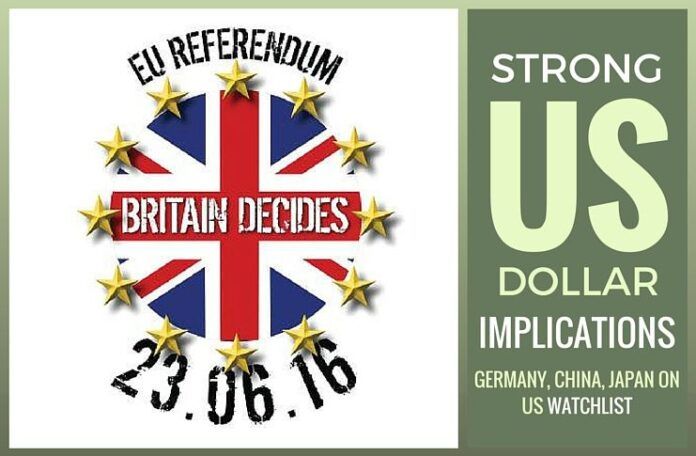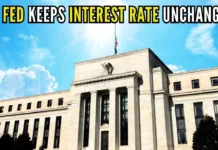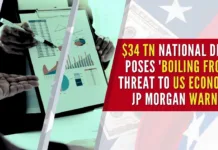
Traders desiring to know what November’s United States (US) presidential election will mean for the dollar need look no further than the British.
[dropcap color=”#008040″ boxed=”yes” boxed_radius=”8px” class=”” id=””]T[/dropcap]he British pound plunged to a seven-year low and unpredictability soared, exceeding all other Group-of-10 countries, on threats created by a referendum on European Union membership. Given the tough talk on dollar strength from nominees vying for the White House, the greenback is equally as exposed to politics, according to Deutsche Bank AG, JPMorgan Chase & Co., and Standard Bank Group Ltd.
China, Japan, and Germany were placed on a currency manipulator watch list by the US Treasury Department.
Republicans and Democrats have each accused of purposely weakening its currency to gain a trade advantage, revealing voter unease linked to a 14 percent fall in manufacturing jobs during the past decade due to China. As rhetoric increases, countries that have sought more competitive exchange rates will maintain the firing line, spurring foreign-exchange volatility, Deutsche Bank’s Alan Ruskin wrote in a May 6 note. China, Japan, and Germany were placed on a currency manipulator watch list by the US Treasury Department.
“Given that there is an anti-globalization, anti-free trade air that’s running through the American electorate, the strong dollar will be a possible victim,” said Paresh Upadhyaya, manager of currency strategy in Boston at Pioneer Investments, which oversees about $236 billion. “The markets will begin to price in a risk premium for the US dollar and for US financial markets.”
Brexit Precedent
[dropcap color=”#008040″ boxed=”yes” boxed_radius=”8px” class=”” id=””]U[/dropcap]padhyaya, who holds a degree in economics and international relations and worked at Putnam Investments LLC in the mid-1990s when the U.S. was embroiled in a conflict with Japan about cheap vehicle imports, sees the dollar weakening versus the euro, yen, and sterling.
JPMorgan’s John Normand, head of foreign exchange, commodities and international rates research, says investors should favor the euro and yen should any commerce conflicts emerge post-election. Steven Barrow at Standard Bank warns of a “pre-vote wobble” for the dollar – reminiscent of the British pound’s reply to #Brexit – and a 20 percent slide for the greenback within months if Donald Trump should happen to win the White House.
Volatility Grows
[dropcap color=”#008040″ boxed=”yes” boxed_radius=”8px” class=”” id=””]T[/dropcap]he abrupt realization that politics left the British pound exposed came in February when British politicians settled on June 23 for a long-discussed referendum on exiting the world’s largest single market. Sterling unpredictability soared on March 23 by the most since 1998, precisely three months.
The dollar’s day of reckoning may come as early as July when the Democratic and Republican parties hold conventions to officially select candidates. While Hillary Clinton heads the list of Democrats, Trump is the presumptive nominee for the Republicans. Dollar-yen volatility has increased an average 1.6 percentage points in the three months before presidential elections over the previous two decades, options prices reveal.
“Too strong a dollar has recently come into the frame as an issue,” said Ruskin, the New York-based global co-head of foreign exchange research at Deutsche Bank, the world’s second-biggest money trader. “Anything that is disruptive to trade or is perceived as likely to be disruptive to trade is a new supply of doubt.”
‘Grand Master’
[dropcap color=”#008040″ boxed=”yes” boxed_radius=”8px” class=”” id=””]T[/dropcap]rump this month called China the “grand master” of devaluation, saying the country is killing the U.S. on commerce and that dollar strength damages American competitiveness. Clinton plans to “ take on foreign nations that keep their goods adding fees and artificially economical” by making a trade prosecutor, according to a campaign site.
Automakers including General Motors Co. and Ford Motor Co. have shifted production abroad, with GM importing versions made in China and Ford creating 2,800 jobs at a new $1.6 billion factory in Mexico. The U.S. trade deficit has grown to $40 billion, from $7.8 billion two decade past.
“Most of the outcry is among national manufacturing companies who are finding it tough enough to compete against what they feel are unfairly priced Chinese products and then, to make matters worse, they don’t see the yuan as free-floating,” said David Schwartz, a partner at Thompson Hine LLP law firm who focuses on trade disputes.
Watch List
[dropcap color=”#008040″ boxed=”yes” boxed_radius=”8px” class=”” id=””]G[/dropcap]ermany, Japan, and China – plus South Korea and Taiwan – satisfy two of three criteria used to categorize unfair practices under a law the Treasury said. Nations that tick all three boxes would face “remedial actions,” with the president empowered to stop trade discussions or withhold project finance.
The election occurs against a constructive economic backdrop that’s supported a nearly 18 percent increase by the dollar during the past two years as investors flock to the U.S. seeking higher yields relative to Europe and Japan.
That increases the stakes for many nations – from Australia and New Zealand to Switzerland and Canada – that have deployed wave after wave of stimuli to try to resurrect their slowing markets in the hangover of the financial disaster. Lower interest rates help foster domestic inflation partially by spurring currency depreciation, which also makes exports more competitively priced versus international peers.
There’s a higher bar to intervention and more pressure on the yen to strengthen, as a result, said Chris Turner, the London-based global head of strategy.
“Money wars have played out worldwide, but U.S. protectionism hasn’t been an issue,” said Turner, who’s been examining markets for 25 years. “You hope you’re because protectionism is not good for everyone but not going back to those dark days of the early 1990s, listening to some of the addresses from the candidates right now, you might have a touch of concern.”
- Supreme Court rejects plea to tally all VVPAT slips with EVM votes; says ‘no going back to paper ballot’ - April 26, 2024
- US report citing human rights violations is deeply biased: India - April 25, 2024
- Kotak Mahindra Bank shares tank 13%. Market Cap erodes by Rs.37,721 cr post-RBI action - April 25, 2024










